Renault Captur vs Dacia Bigster – Vilken modell imponerar mest i vardagen?
Jämför prestanda, bagageutrymme, förbrukning och pris på ett ögonblick.
Ta reda på vilken bil som är det bättre valet – Renault Captur eller Dacia Bigster?
Renault Captur vs. Dacia Bigster: A Battle of the Compact SUVs
The compact SUV segment continues to evolve, offering drivers a harmonious blend of versatility, performance, and innovation. As we delve into the new offerings from Renault and Dacia, namely the Renault Captur and the Dacia Bigster, it becomes clear that both models bring unique strengths to the table. This article explores how they stack up against each other in terms of technical specifications and innovative features.
Design and Dimensions
Design plays a pivotal role in the SUV segment, and both the Renault Captur and the Dacia Bigster present their own distinctive styles. The Renault Captur, with a length of 4239 mm, 1797 mm in width, and a height of 1575 mm, offers a compact profile that suits urban environments. It features a modern exterior that combines dynamic curves with a commanding presence on the road.
The Dacia Bigster, on the other hand, stretches longer, measuring 4570 mm in length, 1813 mm in width, and 1705 mm in height. This larger footprint translates to a more spacious interior, making it a favorable option for families in need of extra space. The Bigster boasts a robust design, underscoring its SUV pedigree.
Performance and Powertrains
Under the hood, the Renault Captur offers a variety of engine types, including full hybrid, petrol MHEV, LPG, and traditional petrol engines. The power ratings range from 91 to 158 HP, offering flexibility for different driving preferences. The hybrid variant, with its 0.6 kWh battery capacity, enhances fuel efficiency and performance.
In contrast, the Dacia Bigster comes equipped with petrol MHEV, full hybrid, and LPG engines. The power output ranges from 130 to 155 HP, providing ample power for diverse driving scenarios. Its option for all-wheel drive signifies a nod towards adventurers seeking off-road capabilities, unlike the Captur's front-wheel-drive setup.
Performance Metrics
Acceleration and top speed are critical metrics in assessing SUV performance. The Renault Captur offers a sprightly acceleration from 0 to 100 km/h in as fast as 8.5 seconds for the hybrid variant, peaking at top speeds between 168 and 180 km/h.
The Dacia Bigster showcases competitive acceleration capabilities, reaching from 0 to 100 km/h in 9.7 seconds, with a maximum speed of 180 km/h. It also boasts formidable torque of 230 Nm in its top variant, ensuring a robust performance even with its larger size.
Fuel Efficiency and Environmental Impact
In a world mindful of environmental impact, fuel efficiency and CO2 emissions become critical factors. The Renault Captur demonstrates impressive consumption figures, with as low as 4.7 L/100 km for the hybrid model and CO2 emissions starting at 106 g/km. It holds CO2 efficiency classes spanning from C to D, showcasing its eco-friendly credentials.
The Dacia Bigster is equally competitive with its 4.7 L/100 km consumption for the hybrid version and CO2 emissions also starting at 106 g/km. Its efficiency classes range from C to E, highlighting its strategic positioning in the eco-conscious market.
Interior Space and Practicality
Practicality is a determiner of value in SUVs, and here the Dacia Bigster takes a lead with an expansive trunk capacity ranging from 546 to 667 liters. For those whose lifestyle requires carrying substantial cargo, this is a noteworthy feature.
The Renault Captur, though slightly more compact, still offers a respectable trunk capacity of 326 to 422 liters. It prioritizes clever design and functionality, ensuring passengers enjoy ample space inside despite its more petite frame.
Final Verdict
Choosing between the Renault Captur and the Dacia Bigster depends significantly on the buyer's priorities. The Renault Captur stands out with its urban-friendly dimensions, modern styling, and a range of powertrain options, ideal for city dwellers seeking versatility and efficiency.
Meanwhile, the Dacia Bigster, with its larger proportions and all-wheel-drive capability, provides ample space and rugged appeal for those who value interior space and occasional off-road adventures. Both models exhibit strong efficiency and innovative features, underscoring their prowess in the competitive crossover SUV market.
Nu blir det konkret: de tekniska skillnaderna i detalj
Kostnader och förbrukning: Vid en jämförelse av pris och effektivitet blir skillnaderna ofta tydliga. Här avgörs det vilken bil som passar plånboken bäst på lång sikt.
Renault Captur har ett lätt prisförsprång – den börjar på 271400 kr, medan Dacia Bigster kostar 277200 kr. Skillnaden är ungefär 5777 kr.
Även bränsleförbrukningen visar skillnader: Renault Captur klarar sig med 4.50 L och är därmed minimal snålare än Dacia Bigster, som drar 4.70 L. Skillnaden är ungefär 0.20 L per 100 km.
Motor och prestanda: Under huven avslöjas vilken modell som är sportigare och vem som är snabbast iväg.
När det gäller motoreffekt har Renault Captur ett lätt övertag – 158 hk mot 155 hk. Det motsvarar ungefär 3 hk hk mer.
I accelerationen från 0 till 100 km/h är Renault Captur något snabbare – 8.50 s mot 9.70 s. Det är ungefär 1.20 s snabbare.
Det finns ingen skillnad i toppfart – båda når 180 km/h.
Även vridmomentet skiljer sig åt: Renault Captur drar lite kraftigare med 270 Nm mot 230 Nm. Skillnaden är cirka 40 Nm.
Utrymme och praktisk användning: Utöver prestanda handlar det i vardagen om komfort och användbarhet. Här avgörs vilken bil som är mest praktisk.
Båda bilarna har plats för 5 personer.
När det gäller tjänstevikt är Renault Captur en aning lättare – 1293 kg mot 1425 kg. Skillnaden är omkring 132 kg.
När det gäller bagageutrymme erbjuder Dacia Bigster klart synligt mer plats – 667 L mot 422 L. Skillnaden är omkring 245 L.
Vid maximal lastvolym presterar Dacia Bigster påtagligt bättre – upp till 1937 L, cirka 574 L mer än Renault Captur.
Även lastkapaciteten visar skillnad: Dacia Bigster minimal bättre – 467 kg mot 457 kg. Skillnaden är ungefär 10 kg.
Vårt omdöme: Dacia Bigster visar sig vara visar små men tydliga fördelar och blir därmed vår DriveDuel Champion!
I den här jämförelsen är Dacia Bigster den mer kompletta allroundbilen.
Renault Captur
Renault Captur har blivit en populär crossover i den svenska bilmarknaden tack vare sin stiliga design och mångsidighet. Med ett rymligt interiör och smarta förvaringslösningar erbjuder den både komfort och praktiska egenskaper för både stadskörning och längre resor. Captur imponerar också med sina möjligheter till personalisering, vilket gör att varje bil kan få en unik karaktär som passar ägarens smak.
detaljer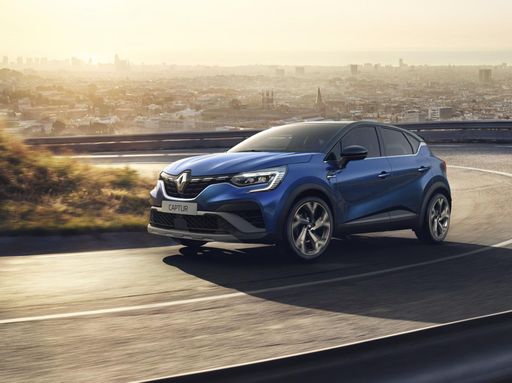 @ renault-presse.de
@ renault-presse.de
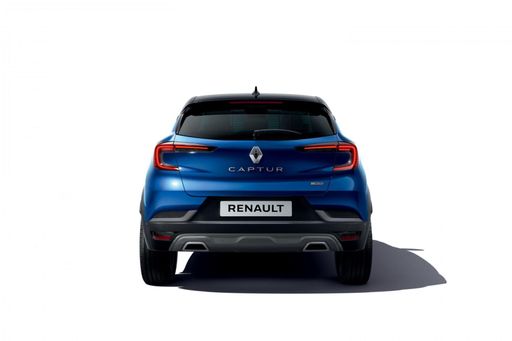 @ renault-presse.de
@ renault-presse.de
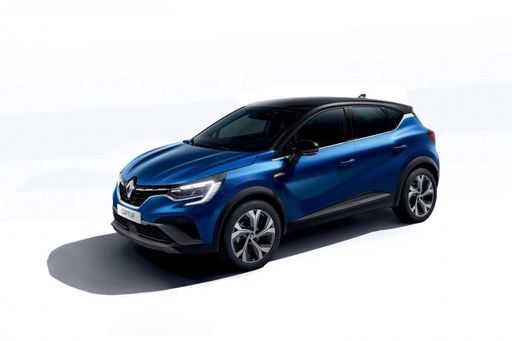 @ renault-presse.de
@ renault-presse.de
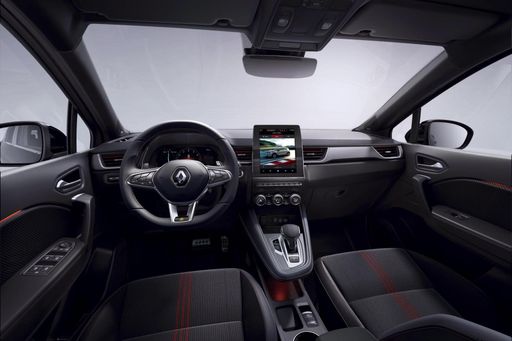 @ renault-presse.de
@ renault-presse.de
Dacia Bigster
The Bigster is poised to redefine the SUV segment with its bold design and spacious interior, catering to the needs of both families and adventure seekers alike. Emphasizing sustainability and practicality, this model reflects a modern approach to automotive engineering, making it a compelling choice for environmentally conscious drivers. With its striking presence on the road, the Bigster not only captures attention but also embodies a new era of versatile mobility.
detaljer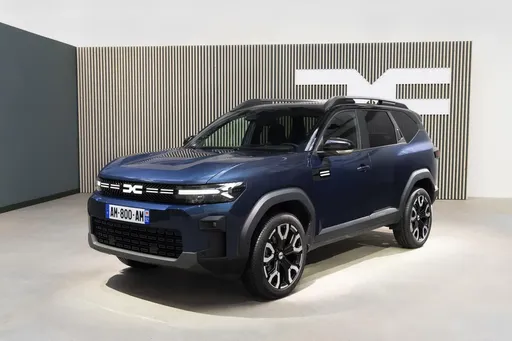 @ media.renault.at
@ media.renault.at
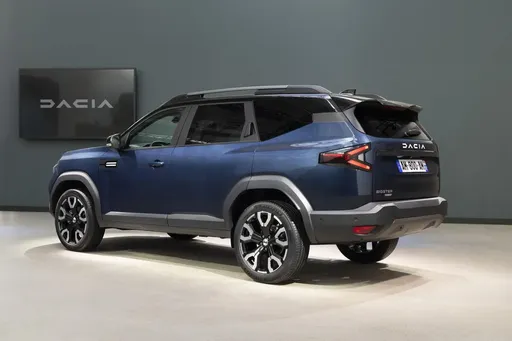 @ media.renault.at
@ media.renault.at
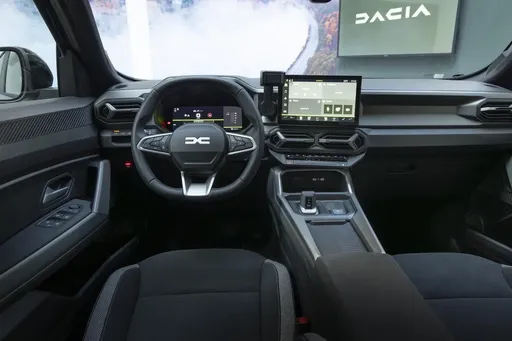 @ media.renault.at
@ media.renault.at
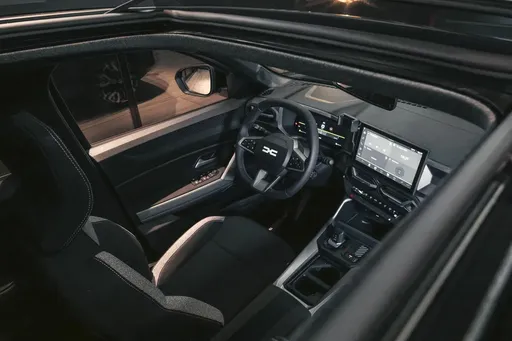 @ media.renault.at
@ media.renault.at
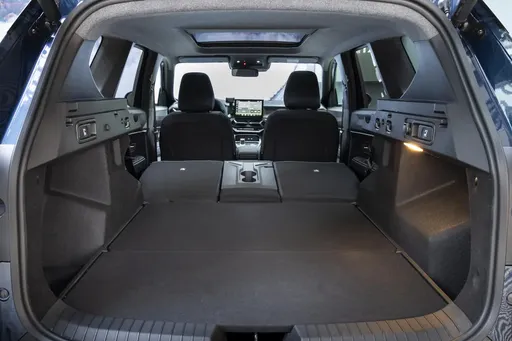 @ media.renault.at
@ media.renault.at

|

|
|
|
|
Kostnader och förbrukning |
|
|---|---|
|
Pris
271400 - 381900 kr
|
Pris
277200 - 358100 kr
|
|
Förbrukning L/100 km
4.5 - 6 L
|
Förbrukning L/100 km
4.7 - 7.1 L
|
|
Förbrukning kWh/100 km
-
|
Förbrukning kWh/100 km
-
|
|
Elektrisk räckvidd
-
|
Elektrisk räckvidd
-
|
|
Batterikapacitet
-
|
Batterikapacitet
-
|
|
CO2
102 - 135 g/km
|
CO2
106 - 137 g/km
|
|
Tankvolym
48 L
|
Tankvolym
50 - 55 L
|
Mått och kaross |
|
|---|---|
|
Karosstyp
SUV
|
Karosstyp
SUV
|
|
Säten
5
|
Säten
5
|
|
Dörrar
5
|
Dörrar
5
|
|
Tjänstevikt
1293 - 1514 kg
|
Tjänstevikt
1425 - 1547 kg
|
|
Bagageutrymme
326 - 422 L
|
Bagageutrymme
510 - 667 L
|
|
Längd
4239 mm
|
Längd
4570 mm
|
|
Bredd
1797 mm
|
Bredd
1813 mm
|
|
Höjd
1575 mm
|
Höjd
1705 mm
|
|
Max bagageutrymme
1276 - 1363 L
|
Max bagageutrymme
1813 - 1937 L
|
|
Lastkapacitet
376 - 457 kg
|
Lastkapacitet
383 - 467 kg
|
Motor och prestanda |
|
|---|---|
|
Motortyp
Bensin Mildhybrid, Bensin, Fullhybrid
|
Motortyp
Bensin Mildhybrid, Fullhybrid, Gas
|
|
Växellåda
Manuel, Automatisk
|
Växellåda
Manuel, Automatisk
|
|
Växellådsdetalj
Manuell växellåda, Automatisk dubbelkoppling, Automatisk växellåda
|
Växellådsdetalj
Manuell växellåda, Automatiserad manuell
|
|
Drivtyp
Framhjulsdrift
|
Drivtyp
Fyrhjulsdrift, Framhjulsdrift
|
|
Effekt (hk)
91 - 158 hk
|
Effekt (hk)
130 - 155 hk
|
|
Acceleration 0-100 km/h
8.5 - 14.3 s
|
Acceleration 0-100 km/h
9.7 - 11.2 s
|
|
Maxhastighet
168 - 180 km/h
|
Maxhastighet
180 km/h
|
|
Vridmoment
160 - 270 Nm
|
Vridmoment
230 Nm
|
|
Antal cylindrar
3 - 4
|
Antal cylindrar
3 - 4
|
|
Effekt (kW)
67 - 116 kW
|
Effekt (kW)
96 - 115 kW
|
|
Motorvolym
999 - 1789 cm3
|
Motorvolym
1199 - 1799 cm3
|
Allmänt |
|
|---|---|
|
Modellår
2024 - 2025
|
Modellår
2025
|
|
CO2-effektivitetsklass
D, C
|
CO2-effektivitetsklass
E, D, C
|
|
Märke
Renault
|
Märke
Dacia
|
Vilka drivlinor finns för Renault Captur?
Modellen erbjuds med Framhjulsdrift.
De visade priserna och uppgifterna är uppskattningar baserade på tyska listpriser och kan variera beroende på land. Denna information är inte juridiskt bindande.
